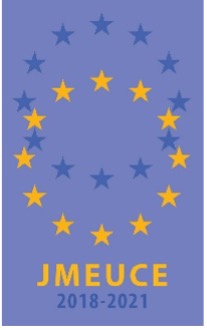2022 Jean Monnet Symposium
Rejuvenating Industrial Regions in Europe, the U.S., and the Globe: How to Do It Effectively and Fairly
Program Description:
The world has experienced many shocks over the last thirty years. Some have been unpleasant, such as the Great Recession and the displacement of many workers under the forces brought by automation. Others have been welcome, such as breakthroughs in clean energy technologies and their rapid deployment in several countries. Yet all of them bring up uncomfortable questions: how can these economic transitions be completed in a way that doesn’t disproportionately penalize at-risk populations?
Industries across the world run the risk of decline and even collapse over the coming years. From the German car industry to the coal mines of West Virginia, millions of workers and their communities are and remain vulnerable to painful economic transitions. While perhaps necessary in the long term to increase the welfare and sustainability of our societies, these transitions can inflict large costs on workers and the communities they live in. These costs, in turn, create conditions that increases political instability. Recent events, such as Brexit, the “gillets jaunes” in France, and the election of populist politicians in US and elsewhere, have been linked to such trends.
This workshop will welcome people who have extensively worked on these themes. Our guests bring a wide variety of perspectives to the table. They come from different geographical areas (Europe, North America), they study different policy areas (energy, manufacturing, etc.), and have different disciplinary backgrounds. We will also invite local stakeholders, such as Pittsburgh United and foundations, to ensure the policy-relevance of our work.
The workshop’s aims are:
-
-Share new research on the problem of industrial decline and rejuvenation of at-risk regions.
-
-Cross-pollinate future research through a multi-disciplinary audiences.
-
-Increase interactions between academic research and practitioners.
NOTE: In-person participation is only available to Pitt community members with valid Pitt Oakland IDs. Any non-Pitt community members wishing to participate may do so virtuall
 Funded in part through the ESC's Jean Monnet EU Center of Excellence (JMEUCE) grant with additional funding from the Title VI National Resource Center Grant.
Funded in part through the ESC's Jean Monnet EU Center of Excellence (JMEUCE) grant with additional funding from the Title VI National Resource Center Grant.
To register, please click here.


